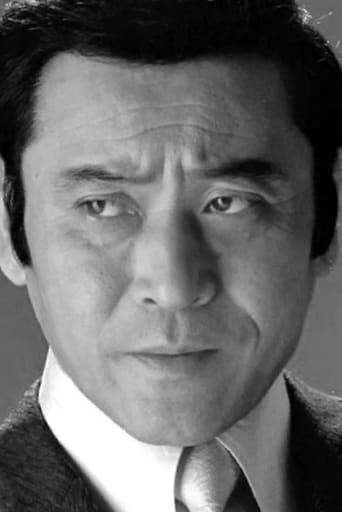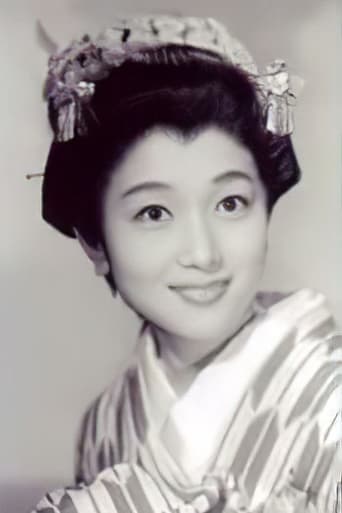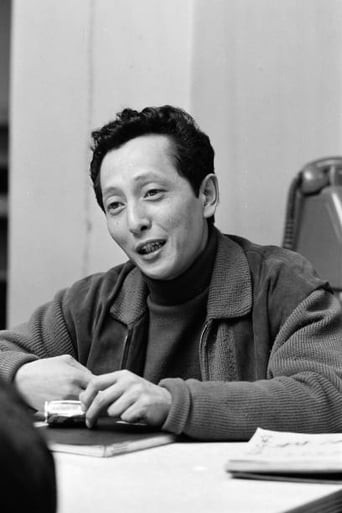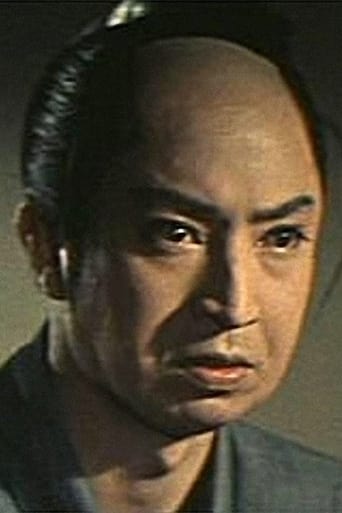Softwing
Most undeservingly overhyped movie of all time??
Infamousta
brilliant actors, brilliant editing
CrawlerChunky
In truth, there is barely enough story here to make a film.
Neive Bellamy
Excellent and certainly provocative... If nothing else, the film is a real conversation starter.
Dustin Dye
THIS REVIEW CONTAINS SPOILERS, NECESSARY AS THE STORY WOULD HAVE ALREADY BEEN FAMILIAR TO Japanese AUDIENCES AT THE TIMEThe Japanese have some of the world's most inventive and exotic ghost stories. Without a shared cultural basis for these stories, they appear especially disquieting to Western audiences. This largely adds to the appeal of "The Ghost of Yotsuya.""The Ghost of Yotsuya" is based on a popular Japanese folk tale, with a basis on an actual murder. The folk tale has been the subject of numerous woodblock prints and ukiyo-e paintings, and was most famously adapted in the kabuki play by Tsuruya Nanboku IV.The story would have been well-known to Japanese audiences at the time. Knowing the story in advance, the audience would have been watching for subtle twists in the plot and mentally comparing it to other stagings.In a nutshell, the story is about Iemon, a ronin samurai whose wife, Oiwa, is weak and ailing after giving birth to their child. Iemon falls in love with the granddaughter of his wealthy neighbor. The neighbor gives Iemon some medicine that will purportedly heal his wife, but instead leaves her disfigured and eventually kills her. Iemon also kills Oiwa's sympathetic masseur, Kohei, who is a possible witness. He then nails their bodies to opposite sides of a shutter and throws their bodies in a lake.Iemon proceeds to marry his neighbor's granddaughter, but his guilty conscience haunts him. At their wedding, he sees Oiwa and decapitates her. But after inspecting her body, he discovers to his horror that he has killed his bride. He then confronts his new grandfather-in-law, but finds Kohei instead. He then decapitates his in-law, thinking he's Kohei. Iemon goes on a killing spree as he sees Oiwa's disfigured face on everybody.Iemon can't escape Oiwa's vengeance, and retreats to life as a hermit on Mt. Hebiyama (Snake Mountain). Even here he is not safe. When he goes fishing, he pulls out the shutter with the two bodies nailed to it. In the iconic finale, the ropes and vines around Iemon turn into snakes (symbolizing the world of death and revenge), and Oiwa's face confronts him on a lantern. Iemon's brother-in-law finally avenges Oiwa and Kohei at the end.It is a moralistic story. In a culture where women had virtually no legal repercussions against abusive husbands, "The Ghost of Yotsuya" warns about the supernatural consequences for cruelty against women.This 1959 film directed by Nobuo Nakagawa is considered the definitive screen adaptation of the story. "The Ghost of Yotsuya" is more or less faithful to the legend, although the filmmakers have added some flares of their own. There are minor changes to names and details. Iemon and Oiwa's relationship is also given a bloody back-story, and it takes almost an hour for the movie to get to the heart of the legend. Nakagawa uses vivid colors reminiscent of a woodblock print, which effectively lend a distinct look to the film.I had a few problems with this film. One was the acting. Japanese acting, even today, tends to be very affected. The style was developed for the kabuki theater, and looks unnatural on screen. I realize this is a cultural difference. It looks like horrible overacting to an American viewer, but if the Japanese think it's good, then it's good. The execution of the story also left something to be desired. Nakagawa seemed to rely more on shocking, gory imagery rather than create a sufficiently creepy atmosphere necessary for a ghost story."The Ghost of Yotsuya" should please die-hard fans of Japanese horror films, and could be seen as a forerunner to "Ringu" (remade in the U.S. as "The Ring") and "Ju-on" (remade as "The Grudge"), both of which take cues from the legend of Oiwa.
DICK STEEL
Touted to be one of the most famous traditional Japanese ghost stories set in the Edo era, there's a certain staged feeling in the way the film got presented, probably because of its Kabuki roots, expanded to include some on location outdoor shoots. Otherwise the story could conveniently unfold on stage for all and sundry, given the limited number of characters involved in a pretty straightforward narrative. In fact, amongst all the films screened during this year's festival, this is the most conventional of the lot.The main protagonist of the film is an anti-hero with enough reasons for anyone to dislike him from the onset. Iemon Tamiya (Shigeru Amachi) opens the film as a murderer, killing just because he got faced with a "No" answer to his desire of marrying Oiwa (Kazuko Wakasugi), and then cooks up an elaborate story just to gain her trust, which involves more murder and the pining of the blame to a criminal on the loose.An ambitious man, he continues looking for a way to better his life and status as a lowly samurai, and sees the quickest way is to marry into a rich family by asking for the hand of Oume (Junko Ikeuchi) in marriage. The complication here is of course his wife whom we had seen him go to great lengths to well, win her over, and the only way to gain a shortcut to the higher class, is to bump her off through an accusation of adultery that he sets up with Takuetsu (Jun Otomo).Directed by Nobuo Nakagawa, the film runs under 80 minutes, and the hauntings well placed only toward the last act where they come quite fast and furious. The bulk of the film gets stuck in setting up how repulsive Iemon is as a person, who will stop at nothing in order to fulfill his desires, never for once hesitating that his grand plan is nothing short of immoral. Being a significant role later, time is also devoted to how virtuous Oiwa is as a wife, bringing to life the mantra of for better or worse, and believing that one day her husband would make it good. Little does she know of course that she doesn't figure in his future plans at all.Much of the horror comes from Iemon's guilt consciousness in constantly seeing visions of his disfigured wife and friend whom he had sent in the act of seduction. Stylistically the appearance of ghostly apparitions are done in old school fashion with plenty of make-up and lighting effects at play, especially since this is a revenge flick where the guilty gets punished because the spirits come back to settle their unfinished business, being wrongly accused and punished. Iemon is quite the fine swordsman that he is, and his swiftness with the sword would prove to be his downfall as he hacks and slashes at his ghostly visions.Naturally the fun comes in the haunting of Iemon, but amongst the artistic presentation of the other films in this year's festival, The Ghost of Yotsuya stood out for its simplicity, and turned out to be very much enjoyable.
markb777
Great film -- very compelling, entertaining and thought provoking.My wonderful girlfriend somewhat randomly picked this up from at the video rental -- excellent film, very interesting story and very well presented. Really liked the character development and camera work -- angles were great and simple film editing (1959) created some excellent special effects.
A classic ghost story with a very clear moral message -- if you double deal on your wife, she will get ugly on you.
freakus
This classic japanese tale has been filmed many times. It's the story of a samurai's betrayal of his wife and the ultimate vengeance her spirit seeks. The spectre of her ghost haunting the mind of her husband is almost like seeing a japanese "The Shining".




